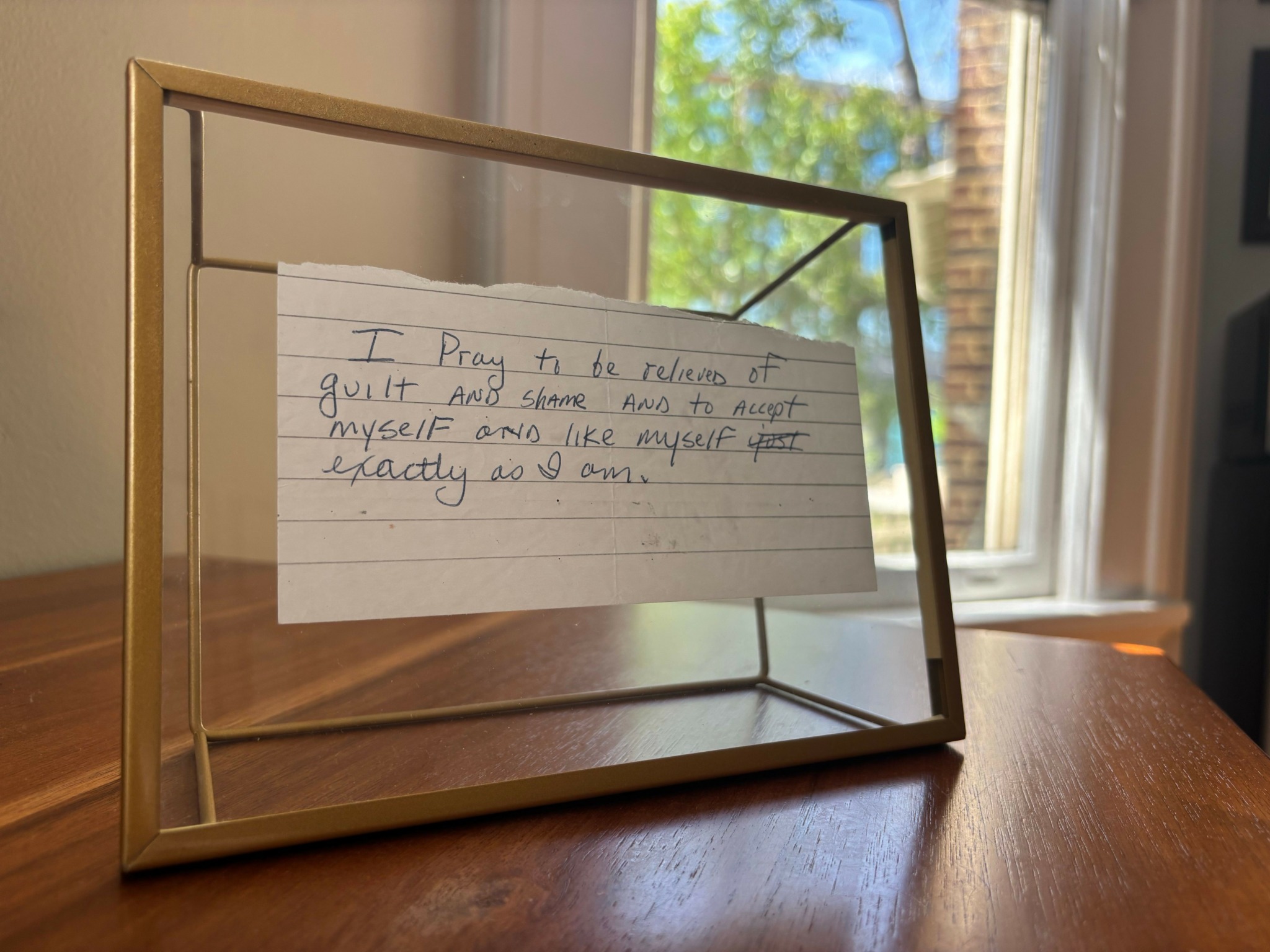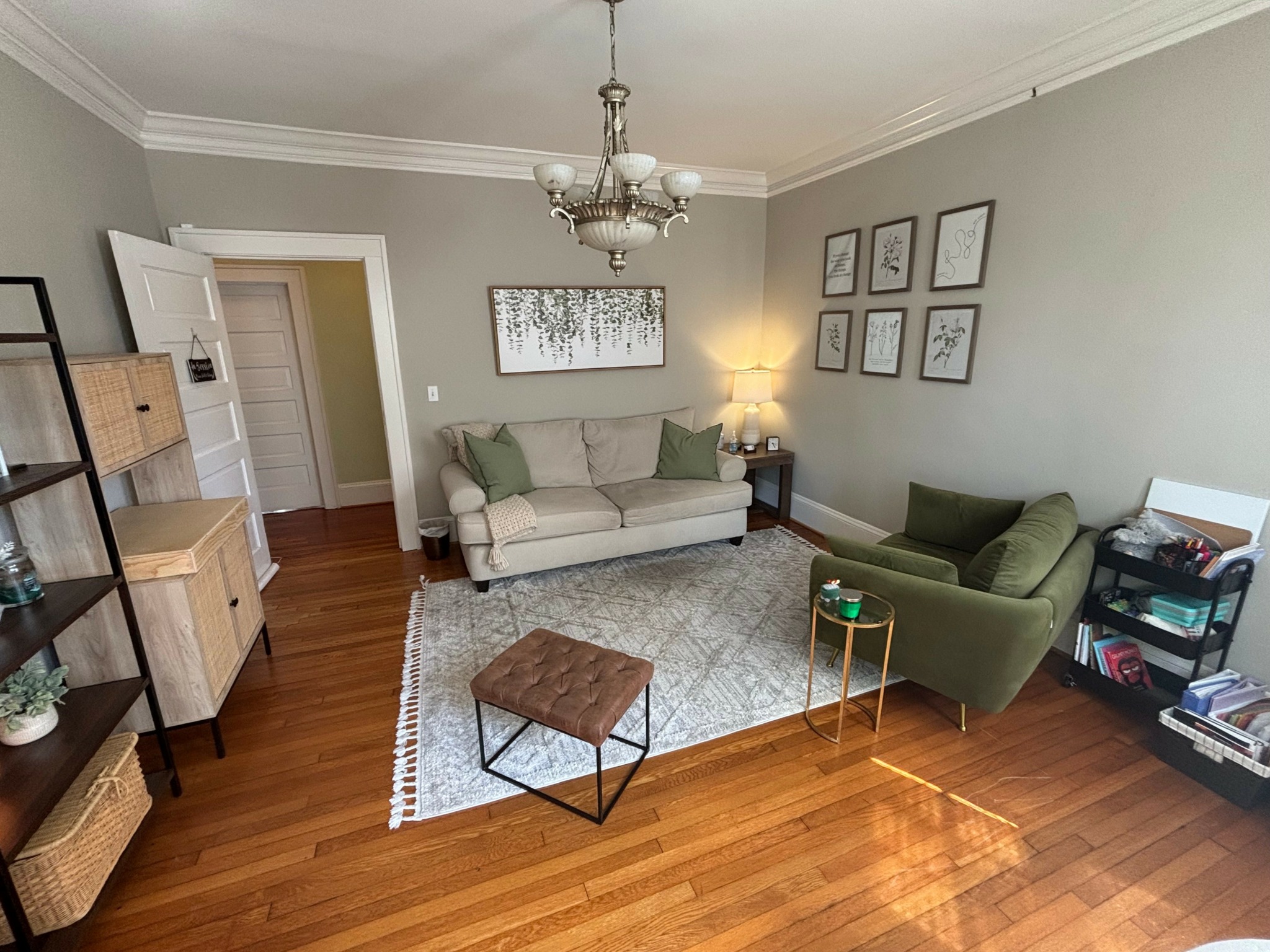We caught up with the brilliant and insightful Mikki Warszawski a few weeks ago and have shared our conversation below.
Mikki, thanks for joining us, excited to have you contributing your stories and insights. Was there a defining moment in your professional career? A moment that changed the trajectory of your career?
My second year of graduate school I was in a a class, Contemporary Theories of Play Therapy. Each week a different guest speaker joined us to share about the theory that they practiced or taught. As an aspiring child and adolescent grief counselor, I enjoyed the class. Towards the end of the semester, a therapist and professor at my university came to talk about EMDR with kids. My knowledge of EMDR—Eye Movement Desensitization and Reprocessing—was limited. I knew it was developed to process PTSD and was primarily used with veterans. It was a theory I had no interest in, given the populations I hoped to work with. Boy was I wrong. As the professor shared, my body started to respond, it felt as if she was speaking to a part deep within me. She went through the 8 phases of EMDR and how it’s modified to work with children. She then pivoted to share current client experiences and how fast client’s brains were being rewired from negative beliefs, such as I’m not good enough or I’m powerless to positive beliefs, such as I am okay as I am and I can control what I can.
At 24-years-old, thanks to my mom’s openness, I’d had been in plenty of therapy on and off throughout my life. During graduate school I took advantage of UNC Charlotte’s free counseling sessions for students. I was currently seeing a therapist at the counseling center for biweekly talk therapy. I was as cognitively self-aware as a 24-year-old could be, but I kept making the same emotionally rooted mistakes; entering relationships that weren’t healthy for me or seeking validation in problematic ways. When Dr. Phipps spoke on EMDR that October afternoon, it felt like something clicked into place. I didn’t need more Cognitive-Behavioral Therapy, I needed something deeper. Following class I walked up to her and shared the impact her presentation had made on me, and unapologetically asked if she had any referrals for an EMDR therapist. She emailed me a list of three names and I chose the first. The next year of my life changed rapidly. I entered EMDR anticipating we were going to process an emotionally abusive high school relationship but soon found that the relationship and my low self-worth were rooted in my father’s death. Where we started, a topic estranged from his passing, quickly led us to my unacknowledged grief. Twelve days before I was born, he died from an eating disorder rooted in Jewish generational trauma—the child of Holocaust survivors. What my therapist and I began to uncover that day, and in the years to follow, was a connected web of negative beliefs and intricate traumas, inherited from my father, his parents, and ancestors beyond.
Through EMDR I was able to recognize that the behavioral changes I was attempting to make were subconsciously posing a threat to needs which had not been met earlier in life. My brain and body were disconnected. EMDR targets negative beliefs initially developed during childhood, adolescence, or following trauma to keep someone safe, but now interferes with growth. Dual-attention stimuli (DAS), pairing bilateral stimulation with painful memories, allows us to desensitize memories and emotions that covertly reinforced negative beliefs. As someone’s SUDs—subjective units of disturbance scale— decreases, their Validity of Cognition (for positive beliefs) increases, allowing clients to live more authentically, grounded in curiosity and compassion. As my negative belief, I’m not good enough decreased, my positive belief I’m enough as I am increased. I was able to advocate for myself, set boundaries, and live a more fulfilled life shying away from my habit of people pleasing.
Months after graduating with my Master’s in Counseling in 2020, I began EMDR basic training, learning the skills and protocol that had effectively rewired my brain. I opened Hineini Counseling PLLC, my own practice in May 2022 specializing in grief and trauma. I expanded my practice at the end of 2024 and currently have 3 therapists who I enjoy working and collaborating with. Today I am an EMDR certified therapist and will be starting my PhD in Counselor Education and Supervision this fall. I am thrilled to advance my career as a therapist and an educator to help both clients and therapists align with their most authentic selves.

Mikki, before we move on to more of these sorts of questions, can you take some time to bring our readers up to speed on you and what you do?
My name is Mikki Warszawski, I’m a Licensed Clinical Mental Health Counselor, EMDR Certified therapist, owner of Hineini Counseling, PLLC, and soon-to-be doctoral student. Throughout my life I have experienced several significant losses. My biological father died two weeks before I was born; and between the ages of seven and seventeen all four of my grandparents passed. When my grandfather died my junior year of high school, I reluctantly attended bereavement counseling provided by the hospice services who had cared for him. When I first walked through the door Penny asked me where I would like to sit; she told me I could move the furniture wherever I would like. I already thought she was crazy. We moved two armchairs into the middle of the room until they faced one another. The next hour was a game of tug-of-war; we took turns pulling back and forth, sharing stories and insights that helped me face the grief I was experiencing during a dramatic life change. Towards the end of college when I was applying to graduate school I thought fondly of her; I wanted people to feel seen and heard as she’d done for me.
During graduate school and my first professional job at a private practice I focused on child and adolescent grief. As I began to grow into myself as a therapist I realized I was most passionate about supporting teens, adults, and parents managing grief and trauma. After almost two years working at a group practice, I was ready to start my own. I opened Hineini Counseling, PLLC in May 2022. The Hebrew word הִנֵּנִי [hee-nay-nee] translates to “Here I Am.” The word signifies a mental, emotional, and spiritual presence; a readiness to grow into your true purpose. I wanted clients to feel that their past was important, and deserved to be honored, and as we would process and release the painful moments it would give them more space to step into their most authentic self.
Hineini Counseling, PLLC is a place of deep work. I am a strong believer in getting to the root of pain. While therapies that focus on symptom management can be helpful and sometimes necessary, modalities like EMDR or Internal Family Systems (IFS) allow us to go deeper and understand where things truly began. I’m proud of the foundation that I’ve created for the practice and the expansion of hiring both skilled and self-aligned therapists.

Can you tell us about a time you’ve had to pivot?
During college I double majored in psychology and creative writing. While I knew I wanted to be a therapist, writing has always been a passion of mine. The writer in me tends to create narratives to better understand who I am. A narrative I adopted in college was that I was going to be a child therapist. That belief about who I was and who I could be propelled me into my career, focusing on play therapy and primarily working with children throughout my internships and first professional job. What I didn’t expect was to essentially have the “dream job” and feel so unfulfilled. I’d been working so hard throughout college, graduate school, and now as a child therapist, but something felt off.
I experienced a lot of difficulty detaching from that narrative, the familiarity and years in the making. At the time I was working at a child and adolescent practice with a case load of mostly kids and some teens and adults.
What would it mean about me if I changed my population?
Who would I be letting down?
What if I wasn’t good enough as an adult therapist?
Who would I be outside of the identity I’d created for myself?
The ruminating continued, and each day I spent with kids, I felt increasingly numb—like the light inside me was slowly fading.
One day, in an intuitive moment, I realized why letting go of being a child therapist was so challenging. I had wanted to become someone who I didn’t feel I had as a kid, growing up in my unacknowledged grief. But as I grew into myself as a therapist, I didn’t authentically want to support children, I wanted to support the parents who were supporting the children. Something clicked into place. Once I gave myself permission to step outside of the narrative I’d created, I was able to make decisions from a grounded, genuine space. I am immensely grateful for my training as a play therapist, I use it daily with teens and adults. I teach parents play therapy skills that they can use at home with their kids to positively shift the family system. I also hold space for teen and adults clients learning how to nurture their inner child. My training as a play therapist allows me to be a stronger and deeper therapist.

Putting training and knowledge aside, what else do you think really matters in terms of succeeding in your field?
No doubt, being your authentic self. As I’m transitioning out of full-time therapy and going back to school, I’m truly passionate about mentoring and supporting new therapists. What I’ve learned from my supervisor, therapist, and countless colleagues in is that the most impactful therapists are those that practice from the core essence of who they are. Instead of trying to fit into a box or prototype of what a “good” therapist is, they prioritize self-alignment. I believe a large part of that is therapists—novice or seasoned—going to their own therapy. It not only gives them insight into the vulnerability that comes with being a client, but also allows them to acknowledge and partner with parts of themselves that are challenging to process or may inadvertently interfere with clients’ progress.
After working in the Charlotte community for the past five years, I have seen my fair share of how group practices are run; I’ve seen the most success when practice owners create a curious, compassionate, and abundant setting, with the belief any therapist who is hired has their own innate gifts to share with the world. In turn, this reduces the risk of burnout and allows congruent therapists to provide safety and enables clients to progress naturally.
Contact Info:
- Website: https://www.hineinicounseling.com


Image Credits
Mikki Warszawski, MA, LCMHC, NCC


